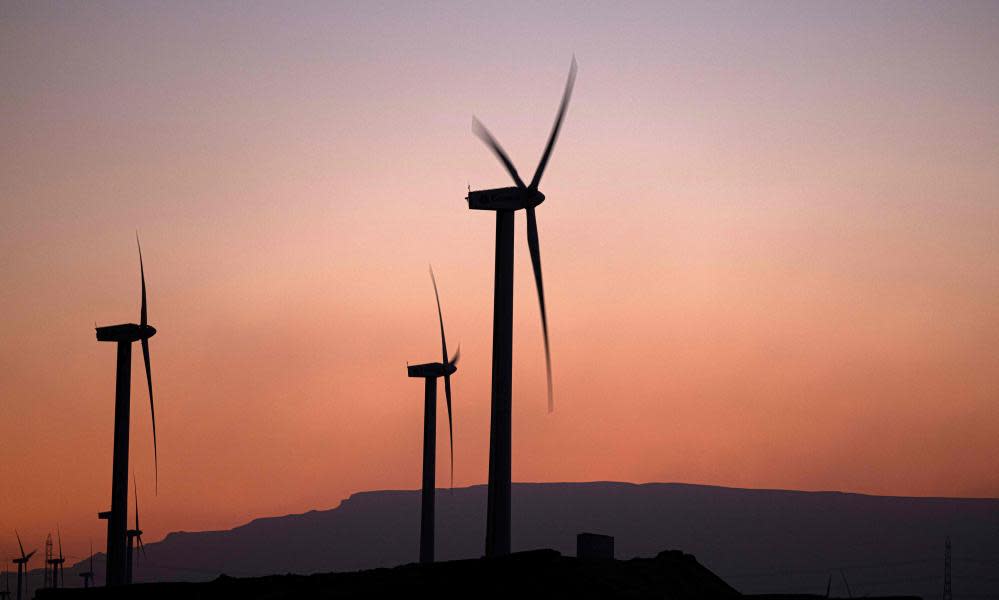U-turn on onshore windfarms likely after Tory rebellion

Ministers will make an announcement on a ban on onshore windfarms in the coming days, including potential “tweaks” to the levelling up bill, in the face of a growing rebellion by Conservative MPs.
The culture secretary, Michelle Donelan, gave the strongest hint yet that the government is preparing to lift the de facto onshore wind ban after the number of public rebels grew to 34 on Monday night.
The government all but confirmed on Monday that restrictions on onshore wind would be changed in the face of the revolt, led by the former levelling up secretary Simon Clarke and endorsed by Boris Johnson and Liz Truss, as well as the former chief whip Wendy Morton.
Donelan said changes were set to be announced by Michael Gove before the bill’s return to parliament. “The government is listening to colleagues around this amendment and I’m sure that there will be some announcements made by the levelling up secretary in the days to come,” she told GB News.
“Members from around the house put down amendments, including senior members of parliament, and then there are discussions between ministers and those members.
“And there are tweaks sometimes made to bills, sometimes people stand their amendment down because they haven’t realised the other elements of the legislation. It’s all part of the legislative process.”
The Guardian understands 34 MPs have signed the amendment, which would evaporate Sunak’s majority because Labour will back Clarke’s amendment, putting Sunak at risk of a Commons defeat.
Labour is also tabling a beefed-up amendment on onshore wind, highlighting the limitations of the Conservative rebel amendment. It would remove the onerous planning restrictions that effectively ban new onshore wind in England but also require local authorities to proactively identify opportunities for renewables, including onshore wind generation.
On Monday, the business and energy secretary, Grant Shapps, said there would be more onshore wind projects “where communities are in favour of it”, which would mean the end of a de facto block on such projects since 2014 under planning rules.
Shapps said incorrectly that Sunak had “always” argued that onshore wind could happen with local consent, adding: “To present it as some sort of massive gulf is completely untrue.”
The U-turn on backing onshore wind projects would directly contradict a pledge by Sunak during his leadership campaign, but Downing Street has sought to frame it as government policy.

 Yahoo Movies
Yahoo Movies 
